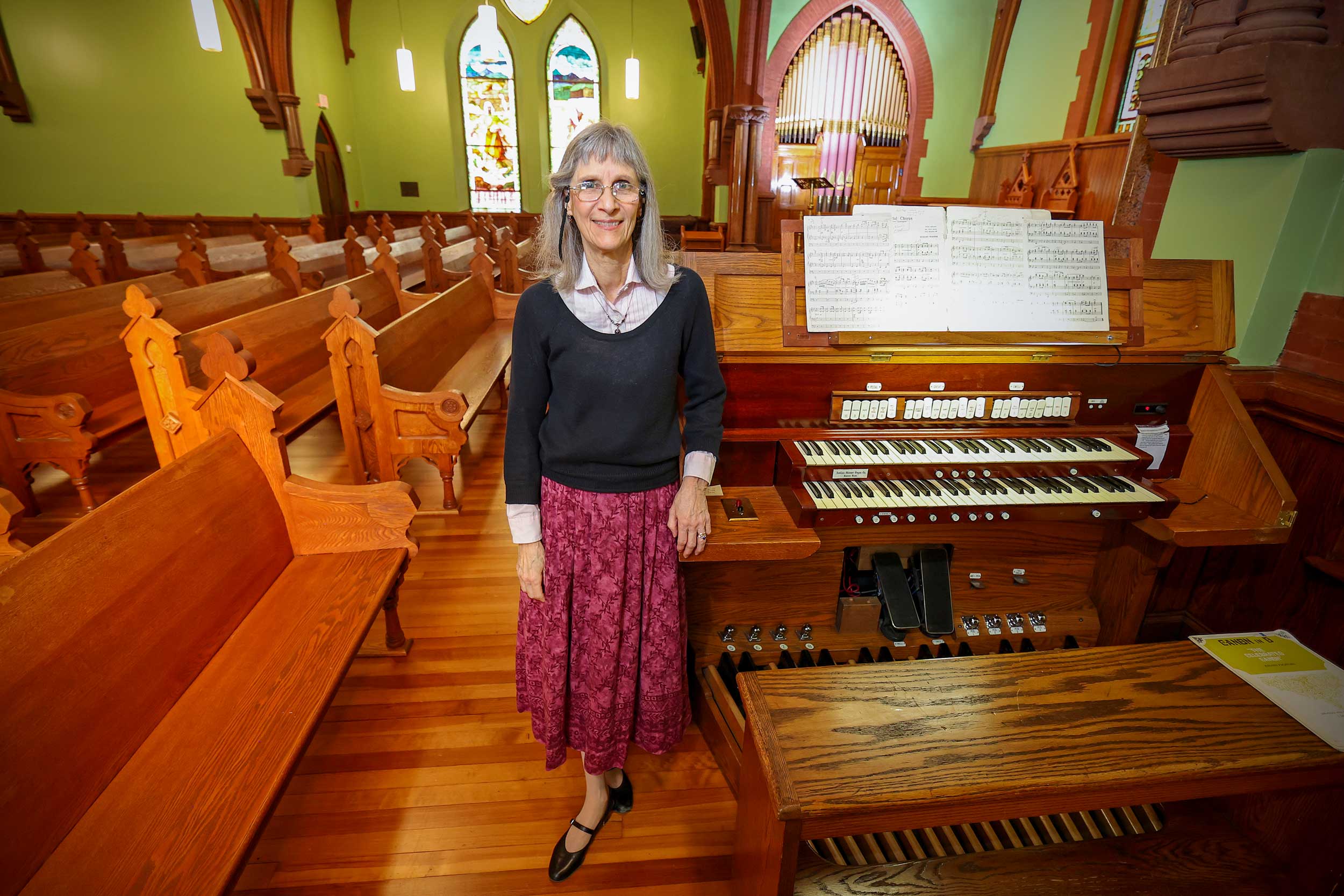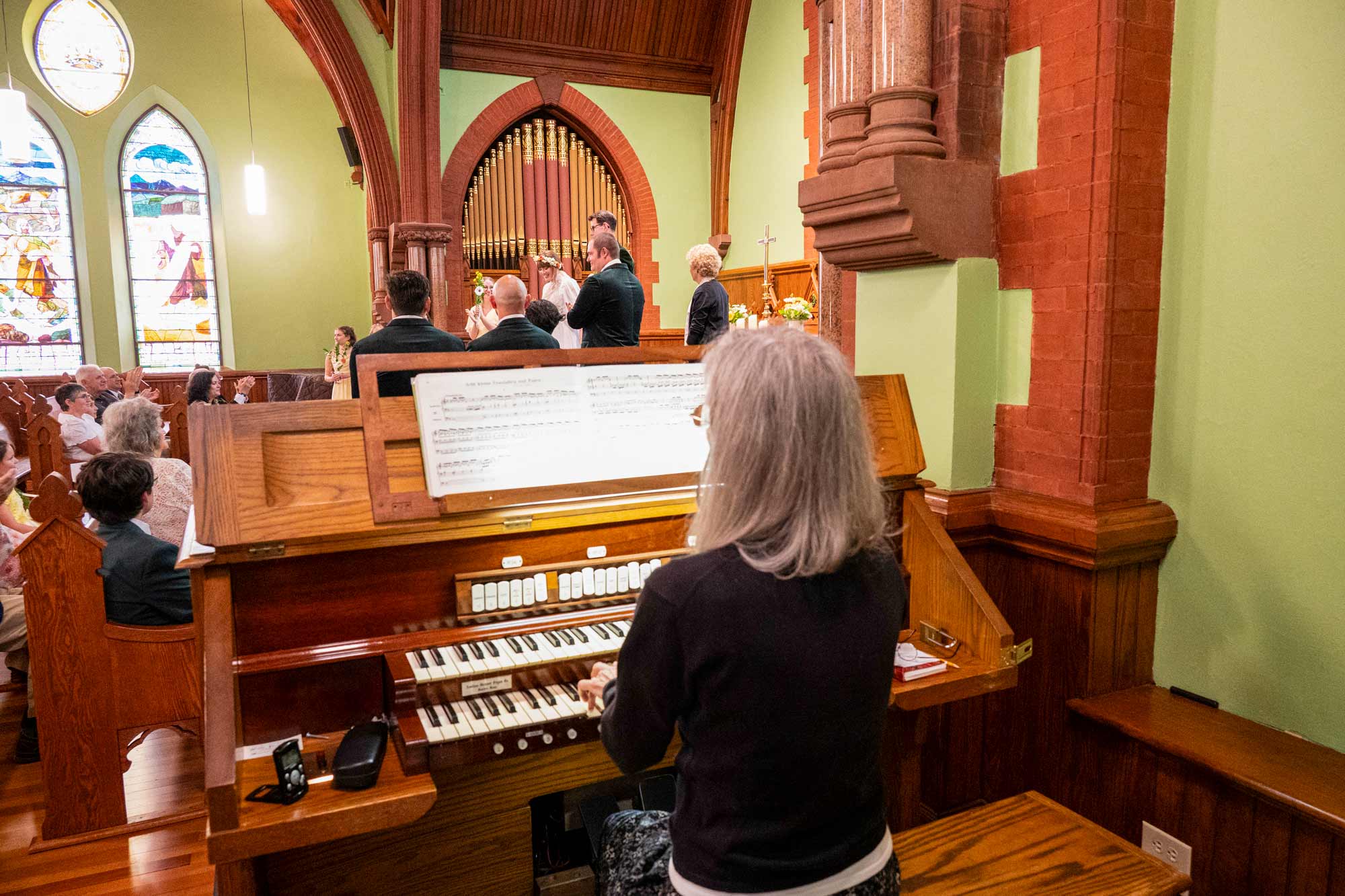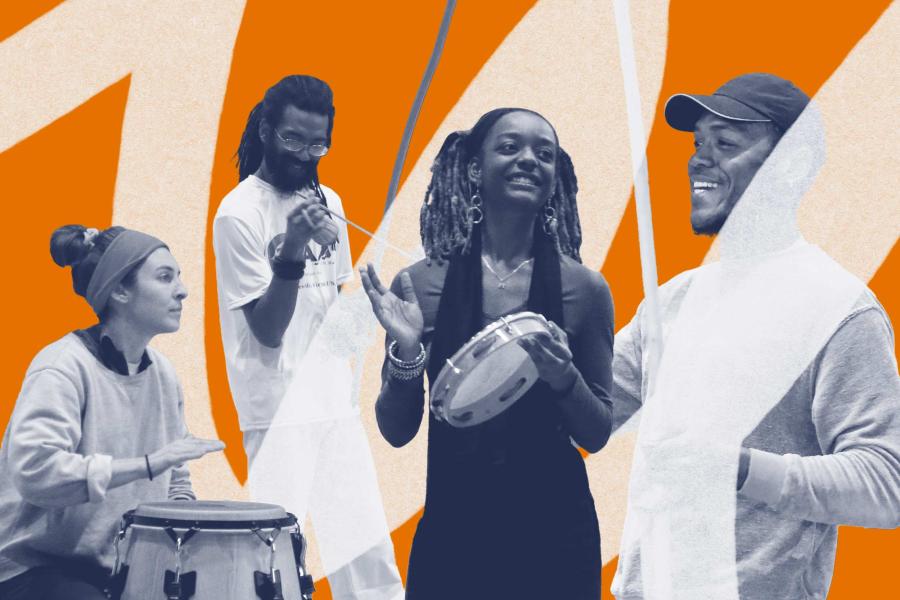Barbara Moore has achieved a feat no other person in the world can claim: She has performed at more than 400 weddings in the chapel at the University of Virginia.
“Oh my,” she recalled. “Gee. I know I’ve played about 700 weddings, but not all of them are at the chapel. So, I’d say maybe two-thirds of them, 400-plus, 450, something like that.”
She played her first wedding when she was 16 years old. Born and raised in Charlottesville, she still remembers her first ceremony in the chapel – one of hundreds she’s meticulously recorded in compact, spiral notebooks during the last 60 years.
“I had just been taking organ for like two years,” she recalled, guessing the wedding year was 1967. “And I only knew enough music to play just a little bit of time beforehand and ‘Here Comes the Bride’ and ‘There Goes the Bride.’”
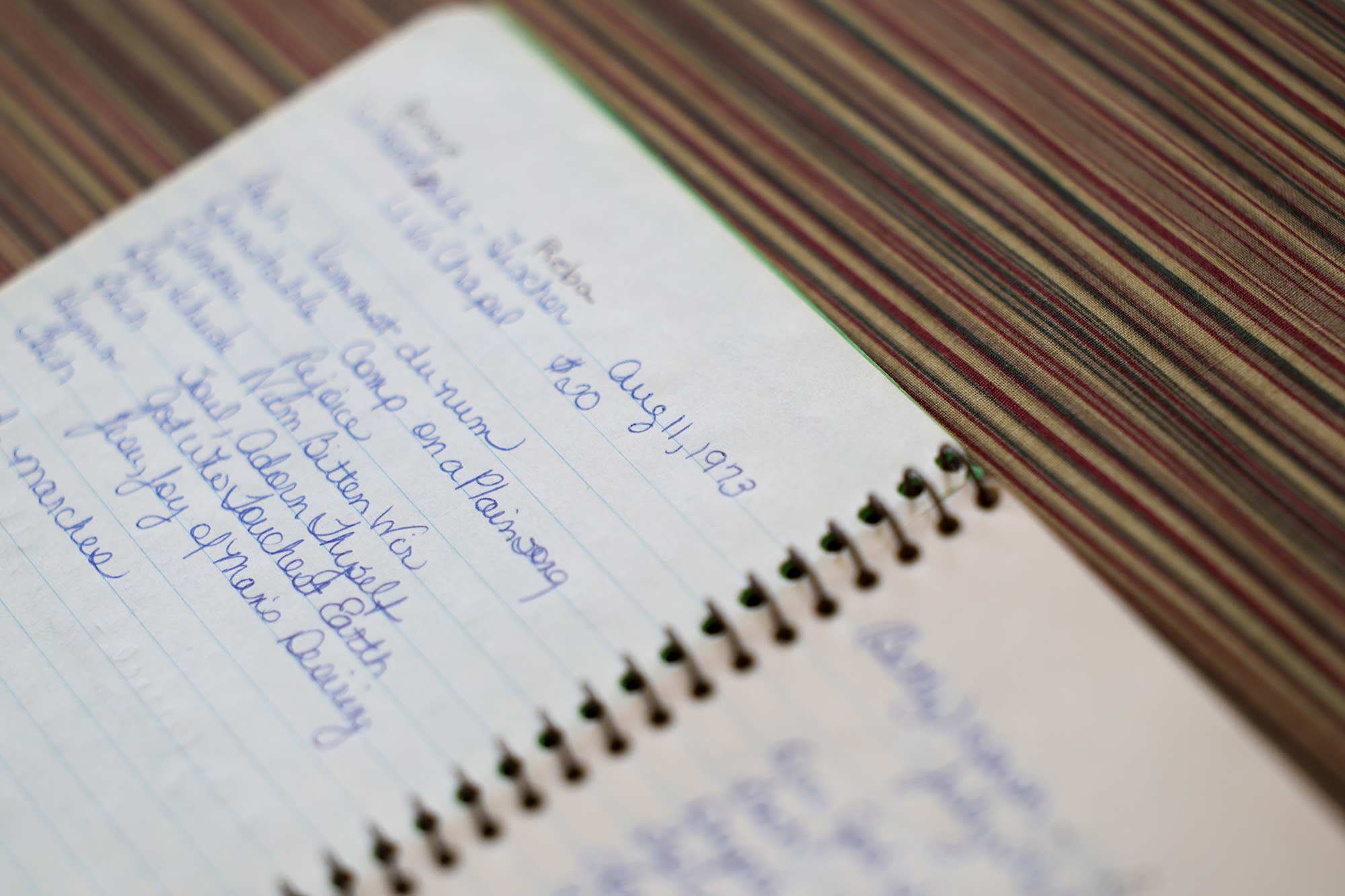
Moore meticulously records in her ledger after performing at weddings. She's played at about 700 ceremonies. (Photo by Matt Riley, University Communications)
Moore’s memory is as detailed as her ledgers.
“They had a priest and a rabbi and they had a Baptist organist,” she said, referring to herself while recalling that first ceremony. “So, I was a little lost. And they did parts of the service in Latin and parts of the service in Hebrew. And so I was just agog the whole time. It was just a fascinating thing.” She earned $25.
Keeping the Organ Alive
Moore earned her Bachelor of Arts degree in music at the then College of Mary Washington in 1973 and her master’s degree in organ performance at Baylor University. Now, she not only performs but teaches in UVA’s Department of Music.
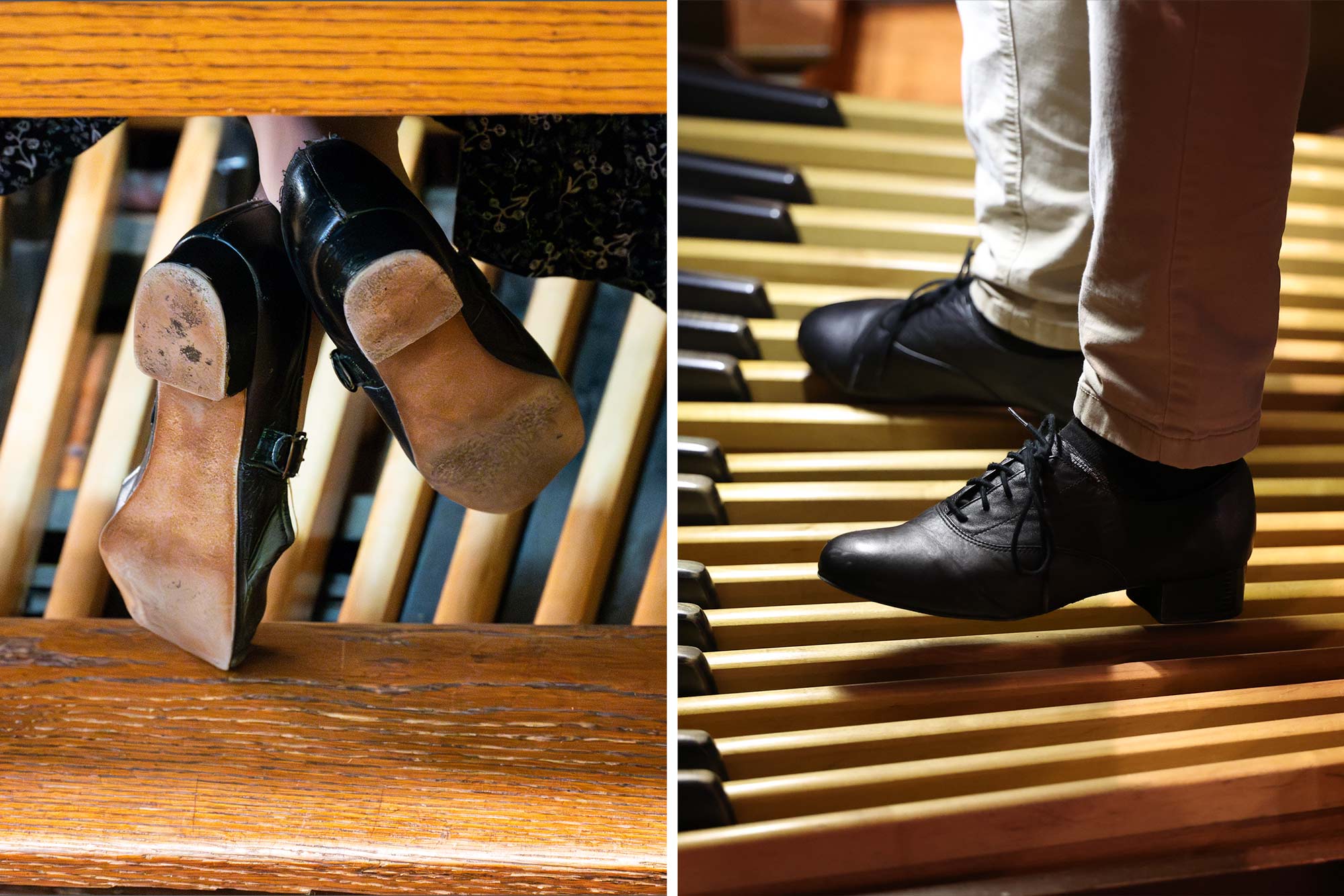
Organ shoes feature felt soles and a heel so the organist can not only slide their feet on the organ pedals but grapevine in a heel, toe, heel pattern. Moore said there are 32 pedals, “They go from super low C to the G above middle C, so it’s two and a half octaves.” Moore’s shoes are featured left. Her student Bernard Gonzales’ are right. (Left photo by Mike Mather, University Communications, right by Matt Riley, University Communications)
This spring, she helped graduate student Bernard Gonzales practice “Menuet Gothique” from “Suite Gothique, Op. 25” by Léon Boëllmann, for his senior recital, which he later performed at his church, St Thomas Aquinas University Parish.
Gonzales arrived for his lesson at University Baptist Church on Main Street on a windy, chilly April morning and hurriedly changed into his organ shoes. “They’re different than normal shoes,” he said. “They have felt on the bottom,” so they don’t scratch the organ’s pedalboards.
“I won’t take anybody as a student who’s not an accomplished pianist,” Moore said, noting the organ is difficult to learn because of its multiple keyboards.
“Unlike a piano, you don’t just get sound if you put your fingers down. You have to know which combination of ‘stops’ to put on and how to manipulate those,” she said. “And third, you’re playing a third keyboard with your feet.”
The stops Moore refers to are a series of buttons the player presses to admit wind, or pressurized air, into certain organ pipes, to create different sounds.
